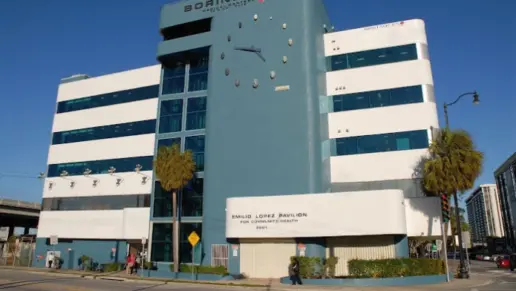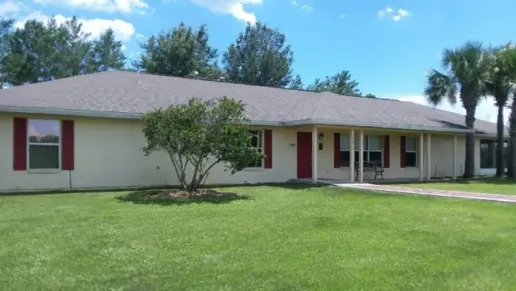So this place is completely a waste of time for the struggling youth in your family. They tell family one thing and the youth another and constantly antagonize the youth to make them act out and get in trouble. God forbid this place actually care about the kids in treatmen ...
About Drug Abuse Treatment Association – Walter D. Kelly Center
The Drug Abuse Treatment Association – Walter D. Kelly Center is a drug and alcohol rehab for adults, children, and their families. Located in West Palm Beach, Florida, they also provide valuable community resources, such as referrals, mental health services, and school-based programs.
Services at Drug Abuse Treatment Association – Walter D. Kelly Center includes mental health assessments, inpatient residential treatment, dual-diagnosis programs, counseling, and outpatient services.
Mental Health Assessment and Counseling
Assessments help clinicians to evaluate a teen’s mental health for substance use disorder and any co-occurring mental health conditions. The information is used to create an individualized treatment plan, which may involve individual, group, and family counseling, and other evidence-based interventions.
Residential Substance Use Disorder Treatment
The inpatient residential addiction treatment program is offered to adolescents, aged 13 to 17, for three to six months. Treatment begins with a mental health assessment and individualized treatment plan. The program includes evidence-based therapies, such as motivational interviewing and cognitive behavioral therapy, together with counseling, behavioral modification, and academic support. Residents also benefit from 24-hour supervision and medical care.
Dual Diagnosis Addiction & Mental Health Treatment
Using therapeutic and evidence-based practices, clinicians can treat addiction and mental health diagnoses at the same time. Treatment includes cognitive behavioral therapy, counseling, support groups, and skills-based classes.
Intensive Outpatient Program (IOP)
The program is available to adolescents aged 13 to 17 who require formal addiction treatment but do not need 24-hour supervision. Treatment includes individual and group counseling, skills development groups, and aftercare.
Facility Overview
Latest Reviews
Rehab Score
Other Forms of Payment
Self-pay involves paying for treatment out of your own pocket. You can use savings or credit, get a personal loan, or receive help from family and friends to fund your treatment. If you don't have insurance or your insurance plan doesn't cover a specific program, self-pay can help ensure you still get the care you need.
Sliding scale payments are based on a client's income and family size. The goal is to make treatment affordable to everyone. By taking these factors into account, addiction recovery care providers help ensure that your treatment does not become a financial burden to you or your family, eliminating one barrier to care.
Private insurance refers to any kind of healthcare coverage that isn't from the state or federal government. This includes individual and family plans offered by an employer or purchased from the Insurance Marketplace. Every plan will have different requirements and out of pocket costs so be sure to get the full details before you start treatment.
Addiction Treatments
Levels of Care
 Inpatient
Inpatient
Treatments
The goal of treatment for alcoholism is abstinence. Those with poor social support, poor motivation, or psychiatric disorders tend to relapse within a few years of treatment. For these people, success is measured by longer periods of abstinence, reduced use of alcohol, better health, and improved social functioning. Recovery and Maintenance are usually based on 12 step programs and AA meetings.
Drug rehab in Florida provides quality treatment to help individuals overcome dependency related to a wide range of addictive substances. Programs address both the physical and mental aspects of addiction in order to help you make a full recovery.
Many of those suffering from addiction also suffer from mental or emotional illnesses like schizophrenia, bipolar disorder, depression, or anxiety disorders. Rehab and other substance abuse facilities treating those with a dual diagnosis or co-occurring disorder administer psychiatric treatment to address the person's mental health issue in addition to drug and alcohol rehabilitation.
A combined mental health and substance abuse rehab has the staff and resources available to handle individuals with both mental health and substance abuse issues. It can be challenging to determine where a specific symptom stems from (a mental health issue or an issue related to substance abuse), so mental health and substance abuse professionals are helpful in detangling symptoms and keeping treatment on track.
Opioid rehabs specialize in supporting those recovering from opioid addiction. They treat those suffering from addiction to illegal opioids like heroin, as well as prescription drugs like oxycodone. These centers typically combine both physical as well as mental and emotional support to help stop addiction. Physical support often includes medical detox and subsequent medical support (including medication), and mental support includes in-depth therapy to address the underlying causes of addiction.
Programs

Adult Program

Young Adult Program
Clinical Services
Research clearly demonstrates that recovery is far more successful and sustainable when loved ones like family members participate in rehab and substance abuse treatment. Genetic factors may be at play when it comes to drug and alcohol addiction, as well as mental health issues. Family dynamics often play a critical role in addiction triggers, and if properly educated, family members can be a strong source of support when it comes to rehabilitation.
Group therapy is any therapeutic work that happens in a group (not one-on-one). There are a number of different group therapy modalities, including support groups, experiential therapy, psycho-education, and more. Group therapy involves treatment as well as processing interaction between group members.
In individual therapy, a patient meets one-on-one with a trained psychologist or counselor. Therapy is a pivotal part of effective substance abuse treatment, as it often covers root causes of addiction, including challenges faced by the patient in their social, family, and work/school life.
Amenities
-
Private Setting
Staff & Accreditations
Staff
John Fowler, BS, CAP, ICADC
President & CEO
Carol Fiddis, MS, CAP, ICADC, CPP, ICPS
Chief Operating Officer
J. Jay Flicker, Psy.D.
Chief of Staff
Scott Sherman
Chief Financial Officer
Jeffrey White
Board of Director Chairman
Eric Seymour
Board of Director Vice Chairman
Mark Taplett
Board of Director Treasurer
Erskine C. Rogers, III
Board of Director Secretary
Accreditations

The Commission on Accreditation of Rehabilitation Facilities (CARF) is a non-profit organization that specifically accredits rehab organizations. Founded in 1966, CARF's, mission is to help service providers like rehab facilities maintain high standards of care.
CARF Accreditation: Yes
Contact Information
1041 45th street
West Palm Beach, FL 33407


